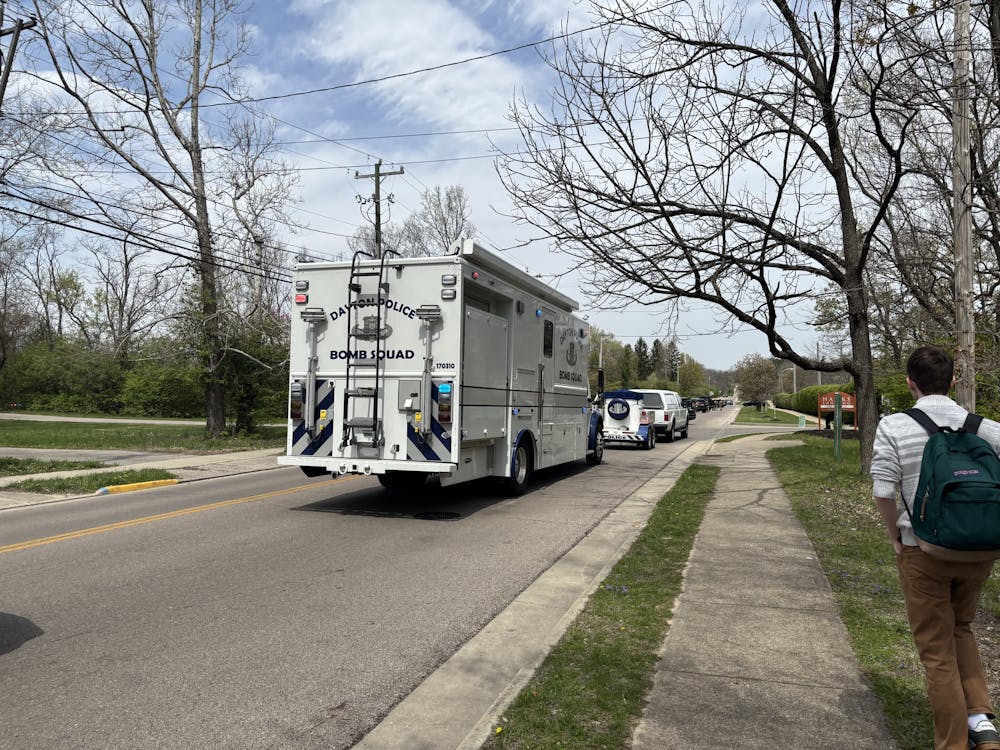The city of Oxford is considering its options as Butler County may restructure its area court system. The city of Oxford is considering four options: using a new Butler County municipal court in Hamilton, establishing an Oxford city municipal court, creating a mayor's court with an appointed magistrate or leaving the courts the way they are now.
At the same time, Butler County prosecutor Michael Gmoser has proposed combining the Area I Court with the other two area courts to form a county-wide municipal court.
Currently, Butler County pays for three area courts. Area courts serve the population that live outside the jurisdiction of municipal courts. Municipal and mayor's courts are paid for by the city it serves, but mayor's courts have magistrates appointed by the mayor and are not courts or record nor are they under the jurisdiction of the Ohio Supreme Court.
City Manager Douglas Elliot said the most expensive option for the city of Oxford is probably to create an Oxford city municipal court. Elliot estimates the city would have to pay a subsidy of $240,000 a year from the general fund with a part-time judge and $600,000 for a full-time judge.
"The city of Oxford council will do what's best for the city of Oxford and of course sometimes the alternatives aren't as clear-cut," Elliott said. "If we're focused on the least costly option, it's probably leave it the way it is now."
If Oxford were to receive its own municipal court, the city would probably have to upgrade or build a new courthouse where the existing one is while the city could keep its existing courthouse if it created a mayor's court, Elliott said. A new courthouse would be an additional expense on top of the operating expenses.
Currently, Butler County Commissioners pay $24,000 a year to the city of Oxford to rent the courthouse Uptown, according to the city of Oxford's 2018 budget report. The projected 2017 revenue from fines and court costs is an additional $40,000.
The total projected revenue in 2017 for Oxford is about $13.6 million. The revenue Oxford receives from fines and rent for the Area Court makes up only about 0.5 percent of the total budget.
Gmoser said he cannot prosecute Oxford city laws in an area court because he does not have the statutory authority to do so under Ohio state law. Gmoser has been prosecuting Oxford laws in the Area I Court for years, but made the decision to stop prosecuting recently after he reviewed Ohio law.
Gmoser said the city law director could either hire a prosecutor or prosecute cases himself in a municipal court, allowing Oxford to prosecute Oxford ordinances again and reap the benefits.
The Oxford Police Department (OPD) started prosecuting under state laws recently. If OPD charges under Oxford law, the city of Oxford receives 50 percent of the court costs. If they charge under state law, the city receives only $4 per citation.
The projected 2018 revenue for the city of Oxford from the Area I Court is only $10,000, a nearly 80 percent decrease from 2017.
Enjoy what you're reading?
Signup for our newsletter
The decrease in the budget is because of Gmoser's decision not to prosecute and OPD's recent move to citing under state instead of Oxford law.
Gmoser said while all the taxpayers of Butler County pay for the area courts, the Area I Court serves principally the specific population Miami University students and the city of Oxford.
"Oxford has a unique and small population compared to everywhere else, and I'm paying the lion's share of all the expenses for that," Gmoser said. "The county is, and I don't think that's fair."
Elliott said the residents of Oxford are also residents of Butler County and pay the same amount of taxes that all other residents pay.
Gmoser said an Oxford municipal court could also establish its own diversion program, providing more revenue for the city that could then be put back in the courts. The current program is run through the county, which generated about $67,500 in revenue last year, according to the Butler County prosecutor's office.
Area I Court judge Robert Lyons said there are still reservations about the cost of a municipal court.
"The money [the city of Oxford] gets from the fines pales in comparison to the costs of having a municipal court," Lyons said.
If Oxford were to receive its own municipal court it would most likely be filled by a full-time elected judge, while the three part-time judges that run the area courts now would be eliminated. Lyons said the Area I Court operates efficiently as it is now.
"I believe that any rational assessment of the situation would be that this court has been functioning here for decades, functioning very efficiently," Lyons said. "I believe strongly that the situation is not broken, why should it be fixed?"
fitzgelm@miamioh.edu




